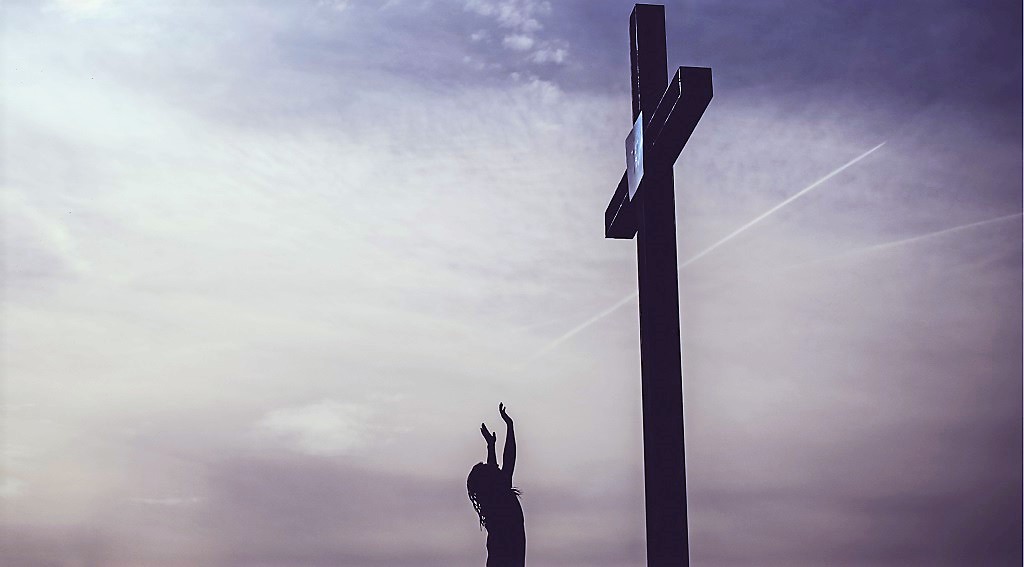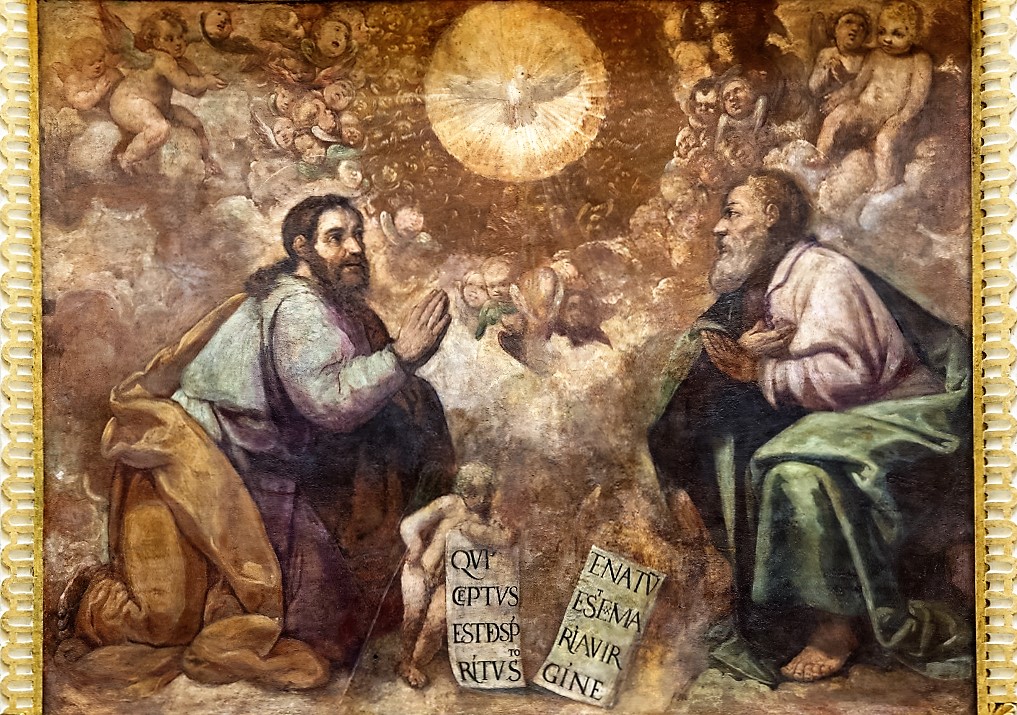Today’s readings challenge us to confront our tendencies toward unbelief and the role that belonging to a group may play in those tendencies. Although we may wish to define ourselves distinctly as individuals, we are also infused with a deep desire for belonging. We are wired for community. While that desire is good, it can also get us into deep confusion when the group loses its way. In that sense, we are very much like sheep: we need a shepherd to rescue us.
In the first reading, Moses is that shepherd. With the benefit of hindsight, we can look with wonder at our predecessors and their willingness to embrace an idol that is so clearly unworthy of worship and unable to deliver the good that they desire. Given the preceding narrative of miraculous deliverance from captivity, their decision makes no sense at all. But somehow, we can also identify with their bad decisions and their resulting plight, which puts them in the soup together.
All such journeys begin with a single step, and sometimes those steps take us where we do not want to go. Maybe they became distracted and bored. They got a little carried away. But it did not take too long — “yada, yada, yada” — before they end up “depraved”. That is a strong word. We do not like to think of ourselves in that way, as it sounds hopelessly disordered, beyond remedy. Fortunately, that is not the case.
The gospel reminds us that even the religious folk, who keep from getting carried away at all cost, have their own problems with unbelief. Jesus’ discourse about testimony and faith reminds these people that they are not so far above their predecessors as they may think. The record is full of evidence, but they are not able (or willing) to see it. Again, with the benefit of hindsight, we know they are missing something. But their plight is ours, too. Even with a “good” life, the comfort of our own paradigms can keep us from recognizing our own flaws. Here, too, the desire to belong can sometimes keep us from recognizing the truth.
While our human dignity depends on the special identity and giftedness that each of us possess, our faith depends on reconciliation which brings us into a community. Truth is the basis for real community, where love and belonging are real, too. Jesus is the embodiment of that truth. We need more of this in our lives. And we need to be reminded (often, it seems) not to accept the inferior substitutes that we so readily embrace, which may seem to provide comfort, but cannot deliver what we really need. In our Lenten journey, may we continue to be open to seeing anew the distractions that keep us from following Jesus and from real community. Thanks be to God.
 Edward A. Morse if a professor of law at Creighton University. He says, “My wife and I have five children. Two are Creighton alumni, two are Creighton students, and one is still at home with us. We live on the farm on which I was raised and continue to help operate part of it. These agrarian roots influence our lives in various ways, and sometimes that influence can be seen in these reflections.” [This reflection is used with permission from Creighton University’s Online Ministries.]
Edward A. Morse if a professor of law at Creighton University. He says, “My wife and I have five children. Two are Creighton alumni, two are Creighton students, and one is still at home with us. We live on the farm on which I was raised and continue to help operate part of it. These agrarian roots influence our lives in various ways, and sometimes that influence can be seen in these reflections.” [This reflection is used with permission from Creighton University’s Online Ministries.]


 Elise Hilton is an author, blogger and speaker. Her role at Diocesan Publications is Editor & Writer with the Marketing Team. She has worked in parish faith formation and Catholic education for over 25 years. A passionate student of theology, Elise enjoys sharing her thoughts on parish communication, the role of social media in the Church, Franciscan spirituality and Catholic parenting. To enquire about booking her as a speaker, please contact her at
Elise Hilton is an author, blogger and speaker. Her role at Diocesan Publications is Editor & Writer with the Marketing Team. She has worked in parish faith formation and Catholic education for over 25 years. A passionate student of theology, Elise enjoys sharing her thoughts on parish communication, the role of social media in the Church, Franciscan spirituality and Catholic parenting. To enquire about booking her as a speaker, please contact her at 
